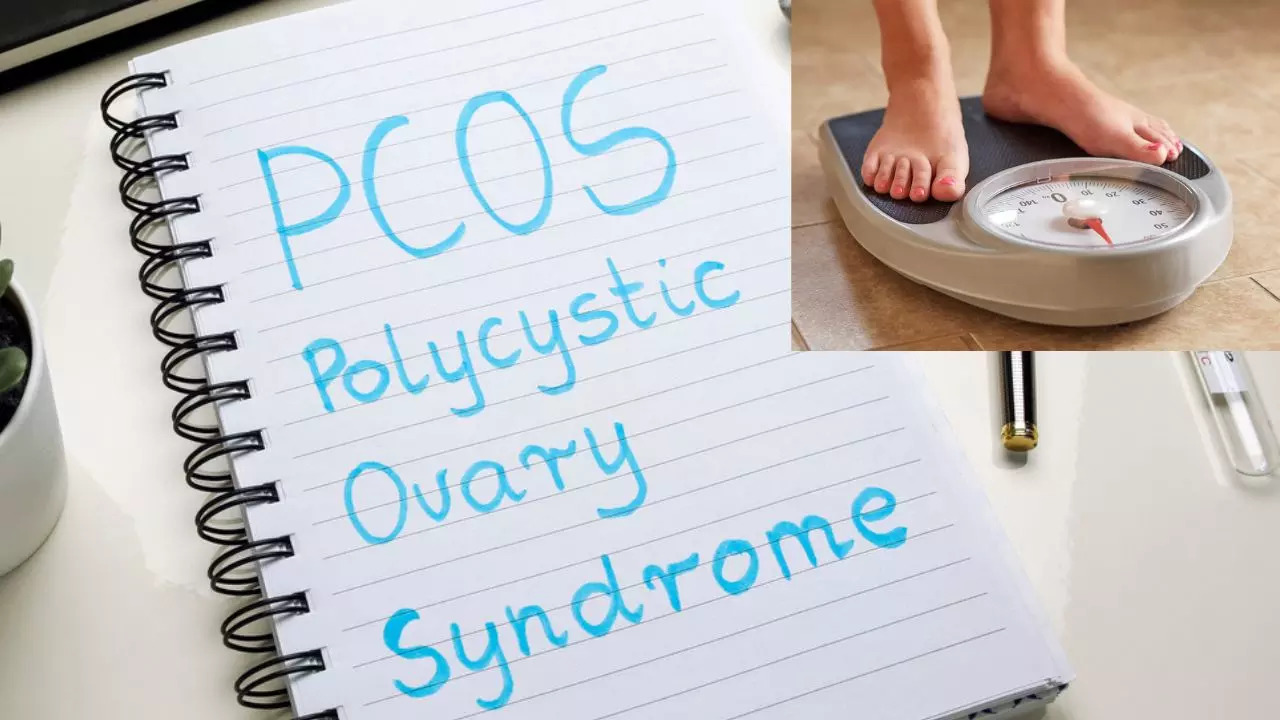How can you avoid weight gain with PCOS? An expert reveals simple tips. (Image: iStock)
Polycystic ovary syndrome (PCOS) is a common condition that causes infertility and affects many women of reproductive age. It is characterized by elevated levels of male hormones, irregular or absent periods, and cysts on the ovaries. PCOS and obesity are closely related and create a cycle that can lead to various health problems. health challenges, including insulin resistance and hormonal imbalances. Understanding this connection is key to effectively managing both conditions.
Times Now Digital spoke to Dr Aparna Govil Bhasker, Consultant Bariatric and Laparoscopic Surgeon, MetaHeal Laparoscopic and Bariatric Surgery Centre, Mumbai, on how obesity can be prevented during PCOS.
How are polycystic ovary syndrome and obesity related?
Hormonal imbalance
In women with PCOS, the body produces more androgens than usual, which can lead to a number of problems, including irregular periods and skin problems. This imbalance also makes the body less sensitive to insulin, a hormone that helps control blood sugar levels.
Insulin resistance and weight gain
When the body becomes resistant to insulin, it cannot effectively use glucose (sugar) for energy. As a result, blood sugar levels rise, causing the pancreas to produce more insulin. This excess insulin can lead to weight gain, particularly around the abdomen, as the body begins to store more fat.
Weight gain worsens polycystic ovary syndrome
Obesity can worsen PCOS symptoms by increasing inflammation in the body, which further disrupts hormonal balance. This can lead to further weight gain, creating a vicious cycle. Women with PCOS and obesity often notice a buildup of fat around the waist, which increases the risk of developing other health problems, such as type 2 diabetes and heart disease.
To break the cycle between PCOS and obesity, it is important to adopt healthy habits. lifestyle habits:
- Eat balanced meals:Focus on whole foods like fruits, vegetables, lean proteins and whole grains, and limit junk and processed foods.
- Exercise regularly:Try to get at least 45 minutes of moderate physical activity most days of the week to help control weight and improve insulin sensitivity.
- Managing stressChronic stress can make both PCOS and obesity worse, so it’s important to find ways to relax.
- Get enough sleep: Aim for 7 to 8 hours of quality sleep each night to help regulate hormones and improve overall health.
- Medical management:Sometimes, you may need to take medications to control PCOS and obesity. Your doctor may recommend medications such as metformin or GLP-1 receptor analogues, depending on your specific health needs.
- Regular medical checkups: Keep an eye on your health by scheduling regular visits with your doctor. This will help you monitor your symptoms and make any necessary adjustments to your treatment plan. By taking these steps, you can better manage the symptoms of PCOS and reduce the impact of obesity on your health.
Disclaimer:
The information contained in this post is for general information purposes only. We make no representations or warranties of any kind, express or implied, about the completeness, accuracy, reliability, suitability or availability with respect to the website or the information, products, services, or related graphics contained on the post for any purpose.
We respect the intellectual property rights of content creators. If you are the owner of any material featured on our website and have concerns about its use, please contact us. We are committed to addressing any copyright issues promptly and will remove any material within 2 days of receiving a request from the rightful owner.

